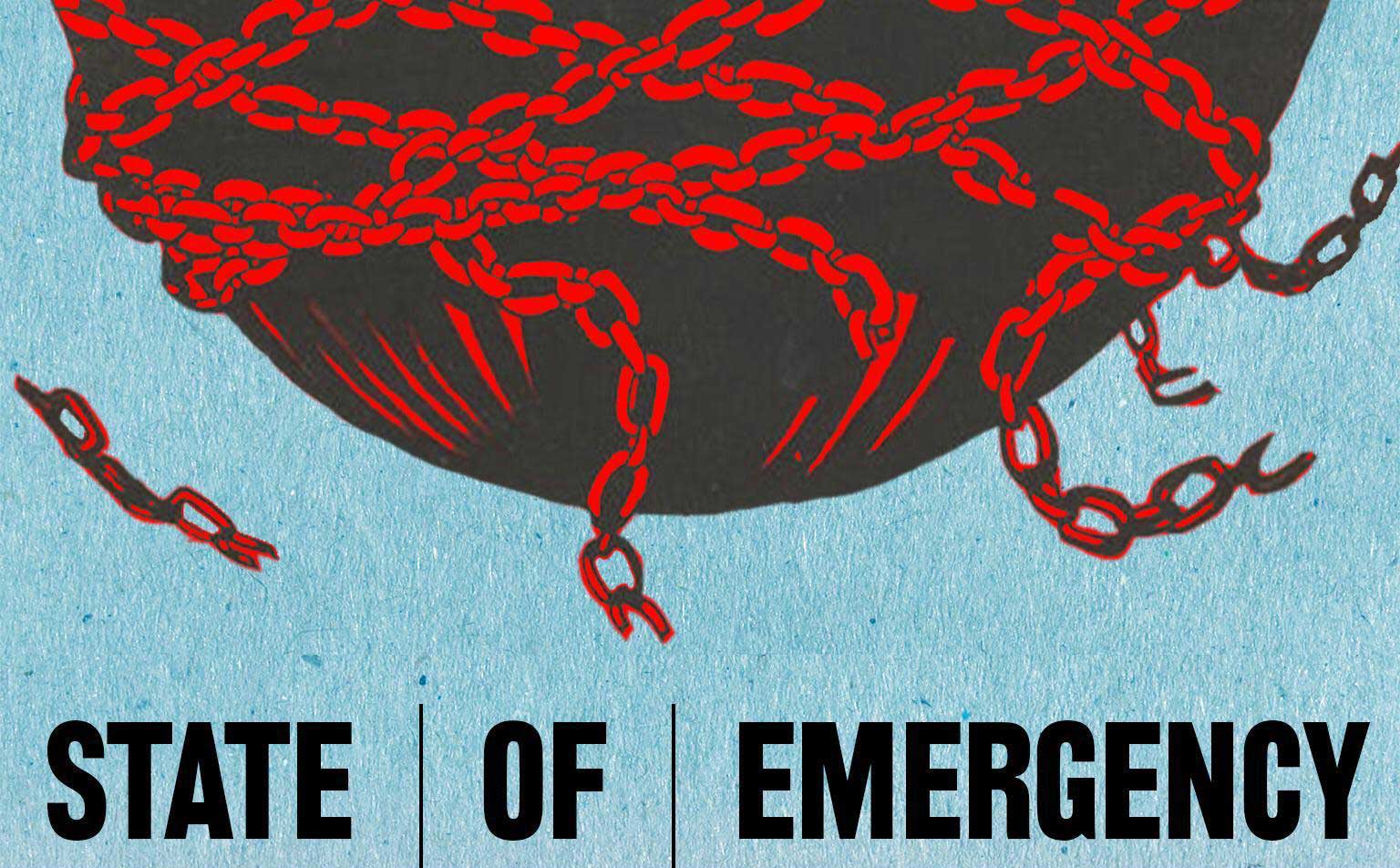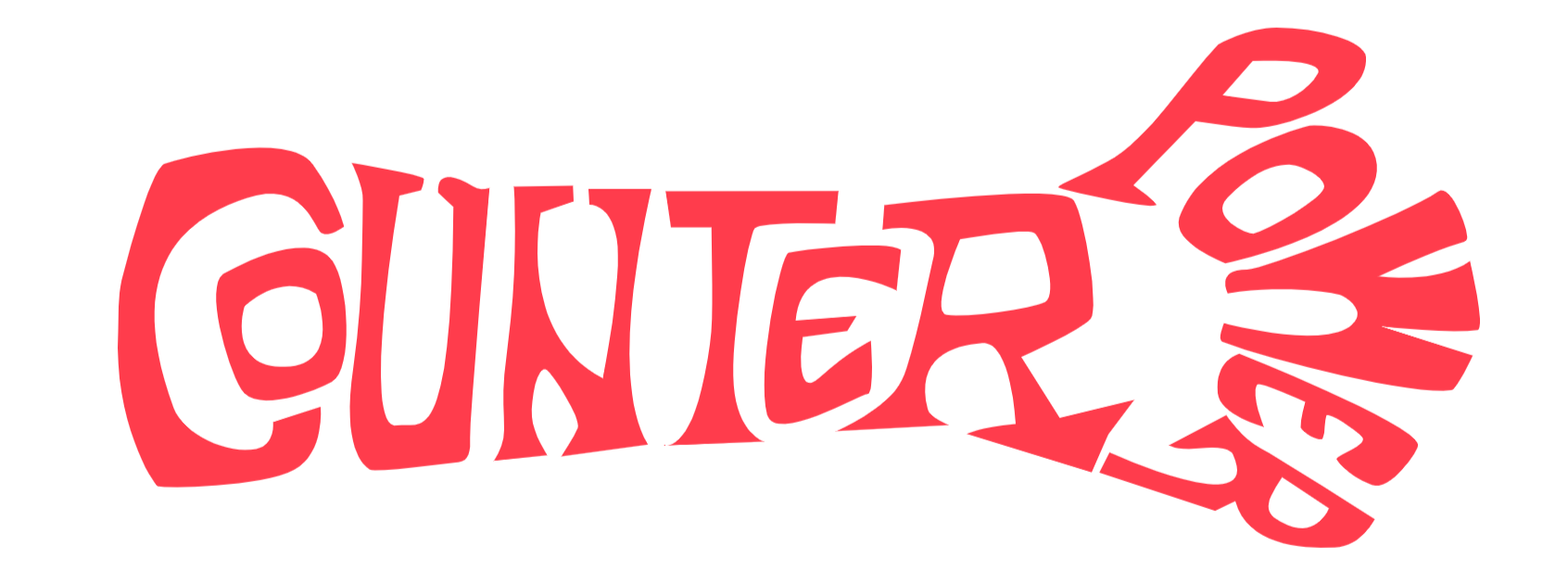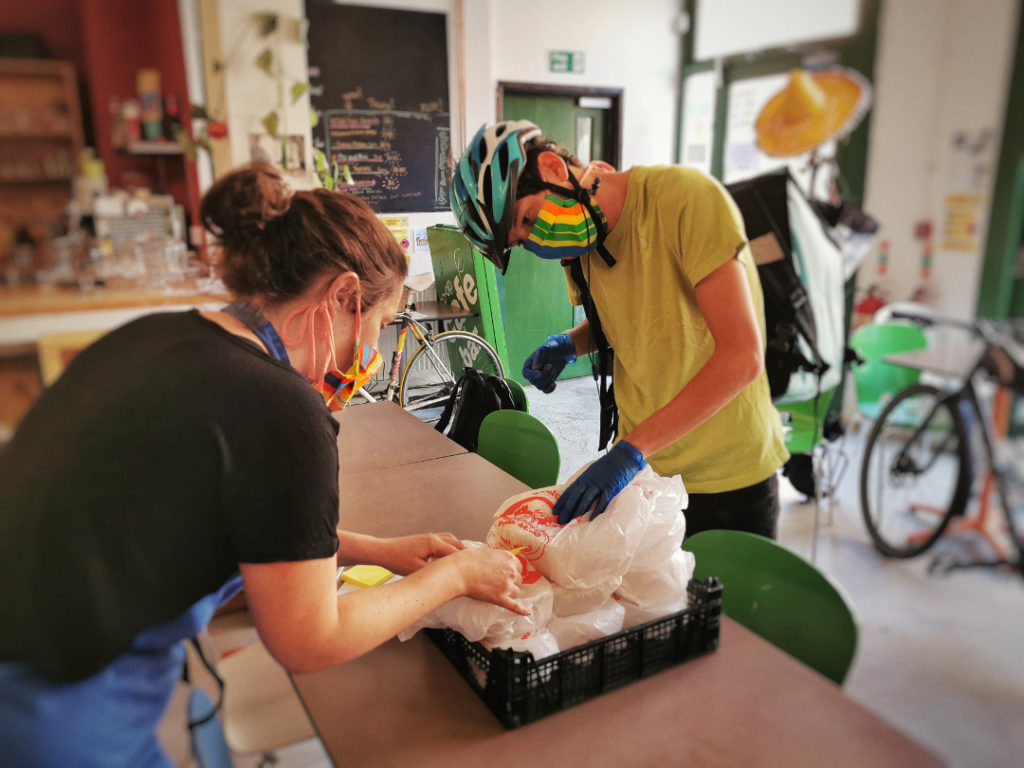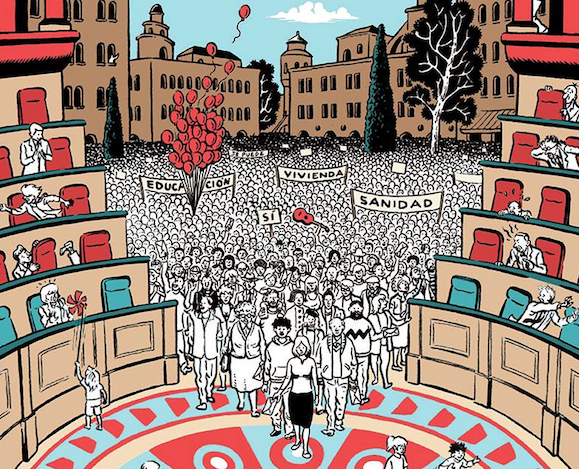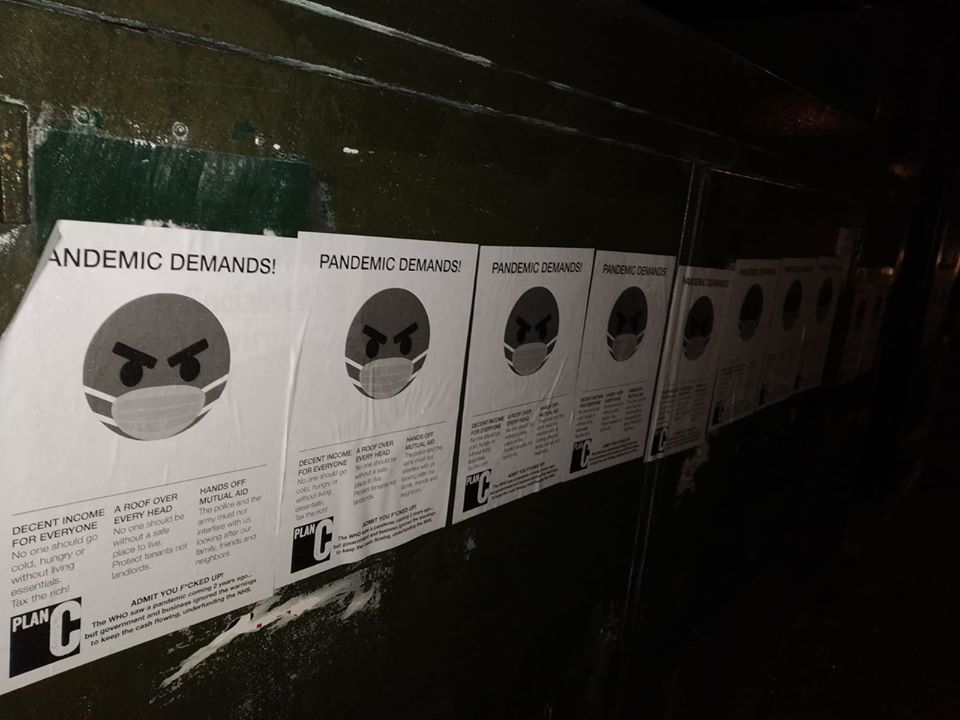We were privileged to have scott crow of the Common Ground Collective join us for Plan C’s first ever Zoom call on 30th September, talking about solidarity, crisis and building community outside the activist bubble.
On a rainy Monday evening, over forty people in the UK joined an online call with an anarchist friend across the waters. The topic: “WTF is Mutual Aid?”
From Brexit to climate change to the hostile environment to austerity, our communities are barely surviving. Disaster appears always present, either here or on the horizon. We can’t wait for some god, or government, to save us. We want to build the strength in our communities right now – to care for those hit hardest by over a decade of austerity and to be ready for whatever’s coming next. This is the intention behind assemblies in London, Bristol and Leeds that Plan C has initiated.
scott crow, an anarchist and writer who was one of the founders of the Common Ground Collective, spoke to us about that collective’s experience of responding to Hurricane Katrina, laid bare the reality of relying on governments or corporations to save us, and challenged our ideas about activism.
“We can’t vote our way out of this, we can’t buy our way out of it, and activism isn’t going to save us either,” scott argued. “Sure, letter writing campaigns and protests can have some benefits – even voting may be the least we can do – but I want to look at how we take control of our own lives in our own neighbourhoods.”
scott talked about how disasters can take all kinds of forms – climate change is a disaster, austerity is a disaster, war is a disaster – and these things don’t necessarily mean that everything falls apart overnight. This makes it difficult to organise because when disasters unfold slowly they can too easily become our ‘new normal’ as we deal with them in our day to day lives. People around the world are recognising that disasters are becoming more common, and in scott’s view the response needed is ‘mutual aid’: essentially, cooperation.
For scott this means organising, not in traditional activist forms, but with people you may not necessarily feel comfortable with, so that when disaster strikes our neighbourhoods, communities, or countries we have the networks, the resources (time, money and people) and the authority to “do it ourselves”.
scott discussed the principle of ‘solidarity, not charity’, viewing charity ‘as a huge problem in our lives’ which involves helping people whilst retaining power over them. He acknowledged the real life complexity of this position when people’s immediate needs can be so enormous that you must respond to them first, and described the concept of dual power as a way to meet these needs whilst also building counter power.
In the aftermath of Hurricane Katrina, respondents looked at Zapatista methods of building land-based worker shared power with which to respond to disasters; they looked at Black Panther concepts of ‘survival pending revolution’.
As coalitions were built, police and white militias tried to murder them – but 30,000 people came down to help, passionate to throw themselves in. The collective created liberatory free schools because all the schools had been closed down, but they also occupied closed schools and forced them to re-open. Medical Clinics were also set up through street medic volunteers and many other initiatives were established. The Zapatistas call these liberatory moments ‘a crack in history’.
During the call, questions included how to scale up projects, how to maintain them in the long-term without them becoming institutionalised or collapsing, how to treat people with respect and dignity rather than trying to convert them, how to confront today’s issue of fragmented, overlapping communities. scott said that he didn’t have all the answers – but he did have suggestions for us.
“Start in small groups. You want to find people you can get along with as you create a culture because as you expand that will be challenged,” he pointed out. “Propose solutions which move people towards making their own lives better. Take activism out of everything. Ask people questions; ask them what they think we should do.”
Sound difficult?
“Don’t sell yourselves short. Go for everything,” scott says. After all, “all we have to give up is our lives.”
You can watch a recording of the call here

